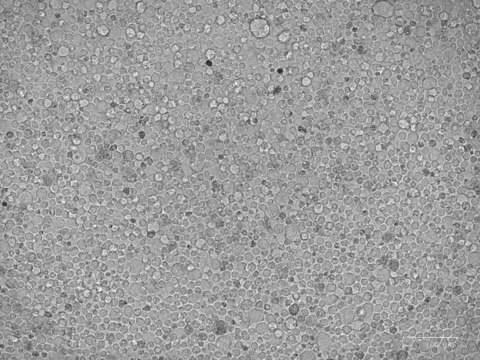THP 1 Cell Line human
88081201, human blood, Monocyte
Synonym(s):
O-THP-1 Cells, THP-1 Macrophages, THP-1 Monocytes, THP1 Cells, THPI Cells, Tohoku Hospital Pediatrics-1 Cells
About This Item
Recommended Products
Product Name
THP 1 Cell Line human, Leukemic monocyte, 88081201
biological source
human blood
growth mode
Suspension
karyotype
Not specified
morphology
Monocyte
products
Not specified
receptors
Fc, C3b
technique(s)
cell culture | mammalian: suitable
relevant disease(s)
cancer
shipped in
dry ice
storage temp.
−196°C
Cell Line Origin
Cell Line Description
Application
- bactericidal activity of moxifloxacin against Staphylococcus aureus
- the effect of lipopolysaccharide-mediated inflammatory response in murine versus human cell lines
- the effects of purine nucleosides on the in vitro growth of Cryptosporidium parvum
- the change in gene expression after infection with Mycobacterium tuberculosis
- the induction of cytokines in the cell line in presence of antigens obtained from Clostridium difficile
DNA Profile
CSF1PO: 11,13
D13S317: 13
D16S539: 11,12
D5S818: 11,12
D7S820: 10
THO1: 8,9.3
TPOX: 8,11
vWA: 16
Culture Medium
Subculture Routine
Other Notes
Choose from one of the most recent versions:
Certificates of Analysis (COA)
It looks like we've run into a problem, but you can still download Certificates of Analysis from our Documents section.
If you need assistance, please contact Customer Support.
Already Own This Product?
Find documentation for the products that you have recently purchased in the Document Library.
Articles
DNA, RNA, cDNA derived from ECACC mammalian cell lines allow screening for genes or expression patterns to identify lines most suitable for specific research.
Our team of scientists has experience in all areas of research including Life Science, Material Science, Chemical Synthesis, Chromatography, Analytical and many others.
Contact Technical Service




